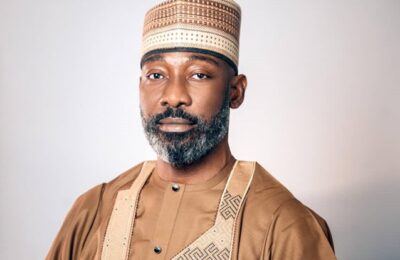In the noisy market square of modern Christianity, where ambition wears the mask of anointing and platforms have replaced prayer rooms, a remnant still walks quietly under the ancient weight of divine commissioning. The true apostolic voice, though drowned in a marketplace of self-promotion, remains God’s most potent instrument for reforming nations and realigning His Church. The world may see them as obscure, but heaven recognizes them as chosen, not chasing.
We live in a generation where visibility has become the new virtue. Titles have outpaced testimonies. Men now rush into pulpits faster than they kneel at altars. Yet, God’s standard for apostleship remains unchanged. The Master’s words in John 15:16 pierce through the centuries: “You did not choose me, but I chose you and appointed you to go and bear fruit—fruit that will last.” Those whom God chooses do not chase visibility; they carry responsibility. The authentic apostolic call begins where ambition dies. A man cannot be sent until he has been slain—slain of ego, pride, and self-will. Apostle Paul was once the terror of believers, yet on the dusty road to Damascus, he was stripped of identity and clothed with divine assignment. His blindness was not punishment—it was purification. “I will show him how much he must suffer for My name,” the Lord told Ananias (Acts 9:16). That remains the path of every true apostle: death before destiny, brokenness before brightness.
Before the public mantle comes the private molding. God never sends an unprocessed vessel. Behind every authentic apostolic voice is a wilderness where motives are tested and the flesh is crucified. Moses was hidden for forty years before leading a nation. Elijah emerged from the desert, not from debate. Apostle Ayo Babalola was unknown until fire from his prayers lit the forests of Oke Oye. Prophet T.B. Joshua was ridiculed long before he was revered. In every dispensation, God hides His treasures before He unveils them. It is in those silent years that character is forged, not just charisma. Bishop David Oyedepo once declared, “God does not call the qualified; He qualifies the called through the crucible of consecration.” The anointing that changes nations cannot rest on unyielded hearts. The hands that will shape generations must first learn to tremble before God.
The marks of apostleship are not followers, likes, or lights—but fruits that remain. Apostolic grace is measured by transformation, not transaction. A true apostle does not build an empire; he builds men. He does not erect altars to himself but to Christ. “It is not ministry when you are seeking visibility,” Oyedepo insists, “it is ministry when you are seeking fruitfulness.” When Apostle Paul planted churches, he left not monuments but movements. His letters became living epistles, outlasting cities and kingdoms. In contrast, today’s spiritual showbiz has produced countless performers but few reformers. The Church must remember that fruit is born from intimacy, not from influence.
Every authentic apostolic call is tested by time, trials, and tears. Before heaven crowns, it first crucifies. God proves loyalty through obscurity, humility through rejection, and endurance through misunderstanding. This is not punishment; it is preparation. Juanita Bynum, reflecting on her wilderness years, once said, “You cannot call yourself an apostle when you have not died to yourself. Apostolic grace is a death process, not a title parade.” The oil that breaks yokes does not come cheap—it drips from crushed olives. Those who rush without refinement may shine briefly, but they burn out quickly. The Spirit never entrusts authority to those who have not survived anonymity.
The twenty-first century Church stands at a prophetic crossroads. We have never had more preachers, yet seldom fewer prophets. The line between calling and craving grows thin. Not every miracle worker carries an apostolic mandate; not every visionary bears heaven’s validation. The gift can be imitated; the grace cannot. God’s confirmation is not in outward spectacle but in inward alignment. True apostles carry the fragrance of brokenness; their presence births conviction, not competition. They speak with the calm weight of men who have seen God, not men who have studied Him. Apostle Raymond Duke Haruna recently noted, “When God truly calls a man, He first kills the voice of self. Only the dead can represent the Living One.” Such words echo the ancient law of divine representation: only those emptied of ambition can host apostolic authority.
God’s method remains timeless—He hides before He heralds. While men scout for influence, heaven scans for obedience. The next generation of apostles will not emerge from conference halls or seminary platforms but from prayer rooms, prisons, and hidden corners of surrender. These will be voices untainted by politics, unshaken by persecution, and unbought by applause. Prophet Isaiah once wrote, “He made my mouth like a sharp sword; in the shadow of His hand He hid me.” Hiddenness is not punishment—it is preservation. Many cry for exposure, yet heaven waits until motives are matured. When God finally unveils His chosen, the world will see not celebrities but servants aflame with compassion, power, and precision.
Apostolic identity is not self-proclaimed; it is Spirit-revealed. No man ordains himself into an office heaven did not assign. Revelation authenticates, while reputation merely advertises. God still raises men who walk in visions, not vanity—men whose authority flows from encounters, not endorsements. During the Welsh Revival, Evan Roberts cried for God to “bend the Church and save the world.” That bending—humility before heaven—is the hallmark of every true apostle. They are not monuments of power but mirrors of Christ’s compassion.
Apostolic authenticity is the antidote to the Church’s current crisis. As false mantles crumble and manufactured ministries fade, a new breed is arising—nameless, faceless, fearless. They will carry not religion but revelation, not ambition but assignment. Their words will pierce systems and their lives will realign nations. These are the ones who have been processed by pain, instructed in isolation, and anointed through adversity. They may not wear designer robes or sit in golden chairs, but when they speak, heavens bear witness. They will not beg for platforms; platforms will bow to their purpose.
In this generation intoxicated by visibility, God is still whispering to the hidden: “I have reserved for Myself those who have not bowed to Baal.” The true apostle walks not with arrogance but with awareness—that grace is a trust, not a trophy. The final measure of apostleship is not how loudly one speaks, but how deeply one serves. True authority does not shout; it shines. The men and women God sends in this hour will not be known by noise, but by nearness. They will be chosen, not chasing.
– Inah Boniface Ocholi writes from Ayah – Igalamela/Odolu LGA, Kogi state.
08152094428 (SMS Only)




